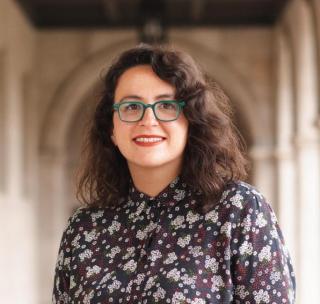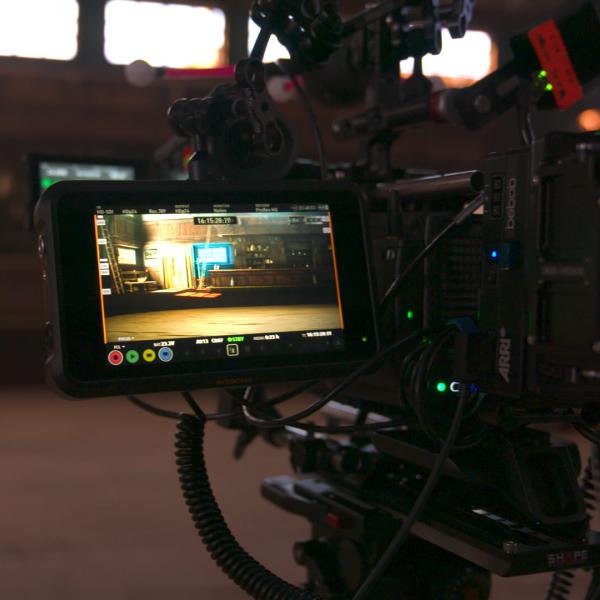Welcome, Dr. Reem Hilu
Reem Hilu, PhD, joins the Film and Media Studies Program and Women, Gender, and Sexuality Studies Department as an assistant professor. She works at the intersection of feminist media studies, media history, and the history of games and computing, and in her current research, she explores the interaction between digital media and domestic spaces. She earned her doctorate at Northwestern University before serving as a postdoctoral fellow in digital humanities at McGill University.
A Q & A with Reem Hilu
How did you first become interested in media studies?
As long as I can remember, I spent most of my time watching and thinking about media, long before I knew that there were courses I could take on the subject. When I was younger, my friends and I used to often discuss how important television and film were in shaping our understanding of identity and belonging, especially growing up in the US with parents who were immigrants and raised in different cultures. Television was a way to relate between cultures. Then, when I started taking courses in cinema studies as an undergraduate, I was captivated by feminist film theories about spectatorship and the new language about gender and identity that I was introduced to through that material. My relationship to media studies has since changed to focus more on gaming and digital media, but this interest in the relationship between media and culture persists.
What are your research interests?
I do historical research on both home computing and gaming (this includes video games and board games). I am interested in the ways that computers and games are used by families and other groups as part of fostering and shaping different kinds of intimacies. This work started with research into games and computing for the home, but is also expanding to consider the way that games were used historically by psychological professionals in clinical settings to mediate relationships between couples and families. Broadly, I am interested in thinking about how media technologies intersect with gender, domesticity, and intimacy. My other interests include television history, children’s media culture, and educational media. I look forward to working with students and mentoring projects in a variety of areas pertaining to digital media, gaming, girls media and culture, television culture, and media technology and gender.
What courses are you looking forward to teaching?
I am especially excited to teach my seminar on video games, gender, and sexuality in the fall semester. In the past, my classes on video games have tended to attract students with so much variation in their familiarity and comfort with games and this always contributes to a really wonderful class dynamic and a lot of great insights all around. I am also looking forward to teaching history of electronic media in the spring. In my own experience as a student, my first exposure to television studies was extremely influential. It really changed the way I understand how to think about media and culture and I hope to share this with my students.
What do you hope to bring to the Film & Media Studies and Women, Gender, and Sexuality Studies communities?
There is very exciting work being done at the intersections of these two fields. I hope to bring my own interest in gaming and digital media studies into the conversations about media taking place. I have often been drawn to media objects that are overlooked or thought of as trivial. For example, when I first became interested in studying computing, I was drawn not to business machines used for “serious” purposes, but rather to dolls with microchips embedded in them that were sold as toys for girls. I am committed to continue analyzing these types of media that I believe are in fact integrated into everyday life in significant ways. At Wash U, I believe this work will thrive in dialogue with the rigorous historical and visual analysis and the sophisticated approach to gender and sexuality undertaken by scholars in these two communities.





